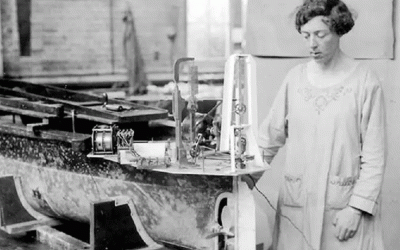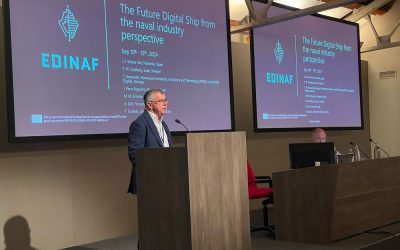 It is barely four years since the IMO adopted the CE Delft report and set 1 January 2020 as the date for reducing the global sulphur cap in marine fuels from 3.5% to just 0.5%. At the time, many within the shipping fraternity were convinced that the 2020 date was too early and that the alternative date of 2025 would have been preferable.
It is barely four years since the IMO adopted the CE Delft report and set 1 January 2020 as the date for reducing the global sulphur cap in marine fuels from 3.5% to just 0.5%. At the time, many within the shipping fraternity were convinced that the 2020 date was too early and that the alternative date of 2025 would have been preferable.
Conceivably the national delegates who are the decision makers at IMO believed that the crude oil price crash that saw the price of a barrel plummet to US$36 or so from a high of over US$120 in mid-2014 would make the price of distillates low enough not to impact financially on ship operators. Or maybe they believed that scrubber uptake would be high and oil refiners would come up with low sulphur alternatives at a sufficiently low price.
What happened between the IMO decision at MEPC 70 in October 2016 and the end of 2019 is now history. Several alternative oil fuels were developed, in a last-minute rush owners of large ships opted in droves to install scrubbers – some ship operators even going so far as to take financial stakes in scrubber makers. There was a limited move towards LNG with even container ship operator giant CMA CGM opting to build LNG-fuelled ULCS’ and others resigning themselves to operating on distillates. There were also many warnings about the dire consequences of using new fuels that were incompatible, untried and perhaps of dubious composition.
While ship operators, engine makers, bunker suppliers and lubricant manufacturers were busily preparing for a low sulphur future, IMO dropped a huge bombshell in April 2018 with its ambitious plan to halve CO2 emissions from shipping by 2050 compared to 2008. This objective goes beyond the EEDI rules, which apply only to new vessels, and covers shipping as a whole including existing vessels.
A carbonless future
Only a small number of the existing fleet in 2018 would still be operational in 2050 but the ambition means that future ships would need to be capable of operating on carbonless fuels. Such fuels do not exist today in quantities sufficient to sustain the shipping industry. More importantly, the engines of today are not designed to run on those fuels. All of which has meant that instead of pursuing further efficiency measures for engines running on conventional oil fuels, the research and development budgets have needed to be applied in a completely new area.
Initial reaction to the IMO’s decarbonisation plans was that future propulsion power for ships would need to come from hydrogen and that meant fuel cells. Engine makers have responded by highlighting that diesel engines are not confined to burning oil fuels or LNG but could be built to run on carbonless fuels such as hydrogen but also the less obvious choice of ammonia.
Ammonia is now seen as possibly the most promising fuel for the future with most leading engine makers now focussing on developing the engines that can use it. Wärtsilä announced a test programme in early summer of this year, which will see ammonia being used in four-stroke spark ignited gas engines and also in dual-fuel engines. The Finnish engine maker plans to begin conducting field tests on ships in 2022. MAN Energy Solutions has been bold enough this year to predict that ammonia-fuelled vessels will appear by 2024 equipped with variants of its two-stroke dual-fuel engines.
Sulphur, so good
The 2020 sulphur cap deadline passed without any high-profile catastrophe, but shipping was soon to be faced with an unexpected hurdle in the form of the Covid-19. The pandemic could have the potential to put all of the plans now in place in danger and a completely new direction for shipping being embarked upon. The impact of the 2020 sulphur cap may have been pushed out of the headlines and the lack of immediate incidents suggesting that all went smoothly may well be true but half a year on, some differing views are being expressed.
Due to Covid-19 shipping has had to reduce trade volumes in almost every sector, force cruise ship operators to suspend sailings and most notably cause chaos for operators planning crew changes leading to hundreds of thousands of seafarers either forced to stay onboard ships or not being able to earn a living.
The wider slowdown in economic activity has seen demand for oil and gas contract significantly causing a crude glut and falling bunker prices. That, in turn, resulted in the price differential for new VLSFO and HFO falling to a level where the case for scrubbers has all but evaporated. A silver lining to the Covid cloud was that the oil over-supply meant tankers were needed for storage space, leading to a rise in daily earnings for crude and product tankers that were not even called upon to complete a voyage.
EEDI and emissions control
Prior to 2020, almost all recent regulation as regards power and efficiency of vessels was related to environmental concerns with the economics being something left for shipowners and operators to grapple with. That remains the case with IMO expecting to revisit the EEDI rules and introduce new NOx ECAs once meetings resume.
Support for the increased environmental regulation over the last decade has been strong among IMO member states and although there are, as yet, no market-based measures adopted to curb emissions, many feel it is inevitable. IMO will be discussing the subject in an online MEPC 75 in November when it reviews its recently released Fourth Greenhouse Gas Study.
However, the massive economic hit that almost every nation has taken in coping with the Covid pandemic may well translate into pushing environmental concerns to the back burner and concentrating on measures to restart the wheels of commerce even to the point of increasing fossil fuel use.
No doubt, engine makers are quite relaxed about a delay to the intended demise of fossil fuels safe in the knowledge that engines that can burn a variety of fuels look set to be around for some time yet. Gaining a little breathing space in the search for the best mix of alternate fuels may not slow down their introduction but may ensure a smoother transition.



